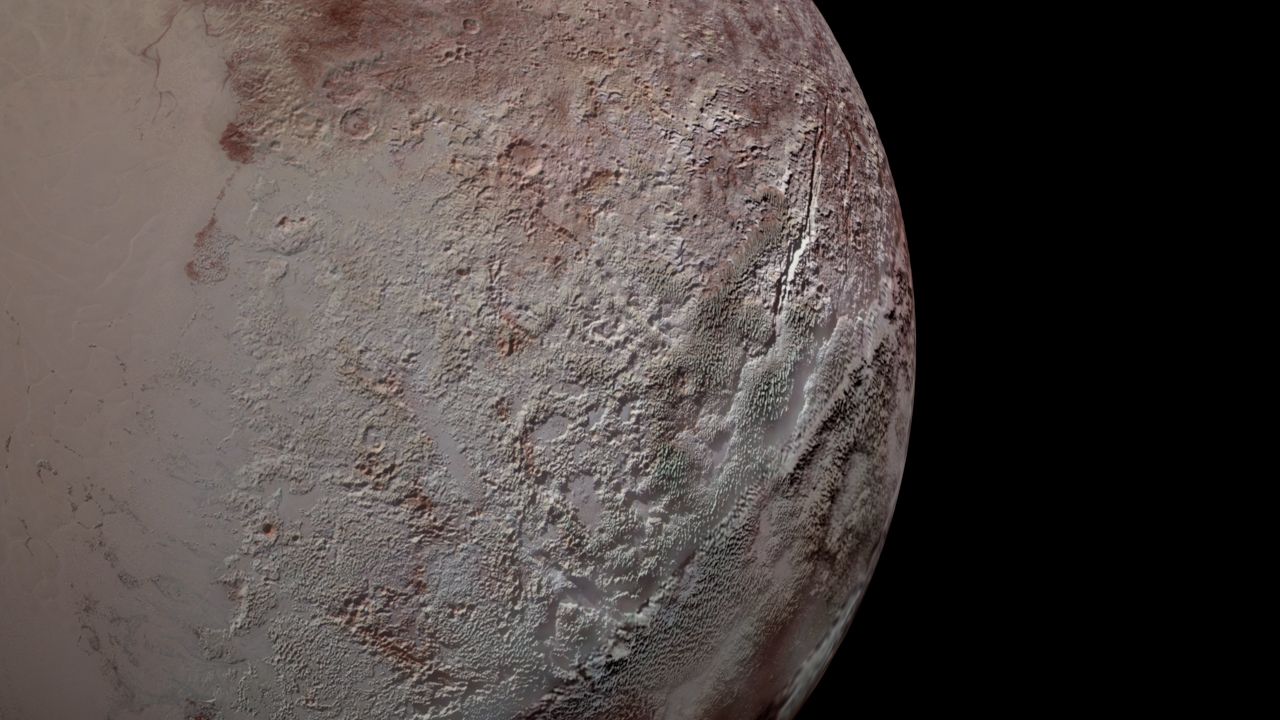
It's not surprising that Pluto is a very cold place: After all, the dwarf planet is 40 times as far away from our sun as we are, so there's not a whole lot of sunlight reaching it. But according to data collected by the New Horizons flyby in 2015, the tiny world is actually even colder—50 degrees Fahrenheit colder—than scientists had expected, and they couldn't figure out why.
The culprit, according to a new paper published today in the journal Nature, may be something we've never seen before in our solar system: a haze of hydrocarbons—solid particles, not gases like here on Earth—in the atmosphere that regulate its temperature. And best of all, the brand-new James Webb Space Telescope due to launch in 2019 will let scientists see if the theory is right.
If it is, it would be a completely unique discovery. "This is kind of a new regime of the climate of planets," lead author Xi Zhang, a planetary scientist at the University of California, Santa Cruz, told Space.com. "We never saw this before."
In order to explain the first strange New Horizons discovery, Zhang and his colleagues looked to a second stumper from the flyby: the onion-like arrangement of 20 or so layers of haze made up of sootlike particles surrounding the dwarf planet.
They realized that the large, solid particles within the layers of haze could be bouncing energy back out into space as infrared radiation. Running the numbers again taking that phenomenon into account yielded temperature estimates that actually matched the chilly stats gathered by New Horizons.
If their hypothesis holds up, the haze particles themselves may be fairly similar to what's found in the atmosphere around Saturn's moon Titan—carbon-containing compounds. But scientists haven't yet been able to actually identify the recipe behind Pluto's haze. And even on Titan, the actual thermostat is still governed by gases, just as it is here on Earth.
Fortunately, infrared radiation has an easy fingerprint to spot with the right tool, and the James Webb Space Telescope, currently scheduled to launch in 2019, will take on gathering just that sort of scientific data. That means scientists can train it on Pluto and someday soon crack the most charismatic dwarf planet's secret to keeping its cool.
Uncommon Knowledge
Newsweek is committed to challenging conventional wisdom and finding connections in the search for common ground.
Newsweek is committed to challenging conventional wisdom and finding connections in the search for common ground.
About the writer
Meghan Bartels is a science journalist based in New York City who covers the science happening on the surface of ... Read more
To read how Newsweek uses AI as a newsroom tool, Click here.






